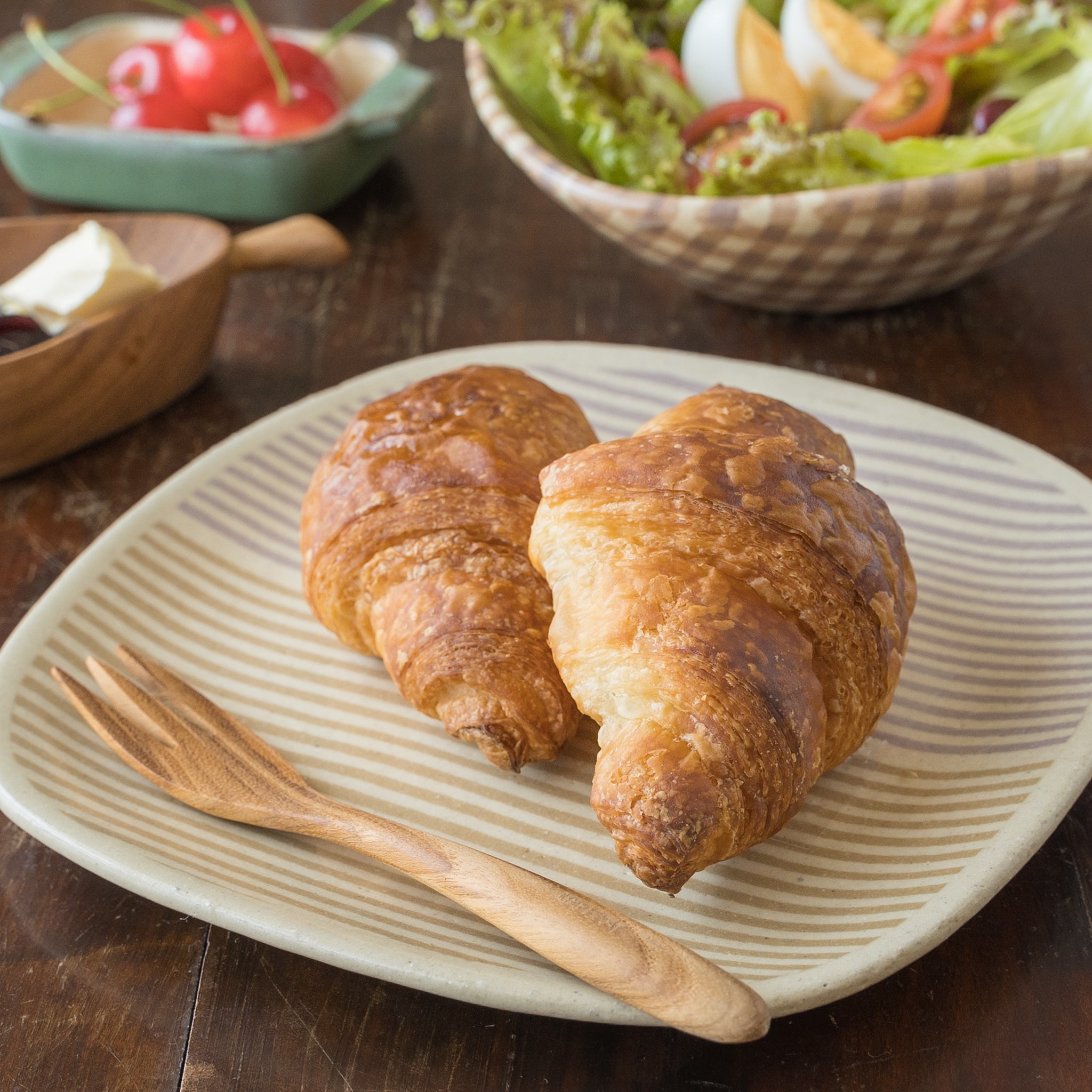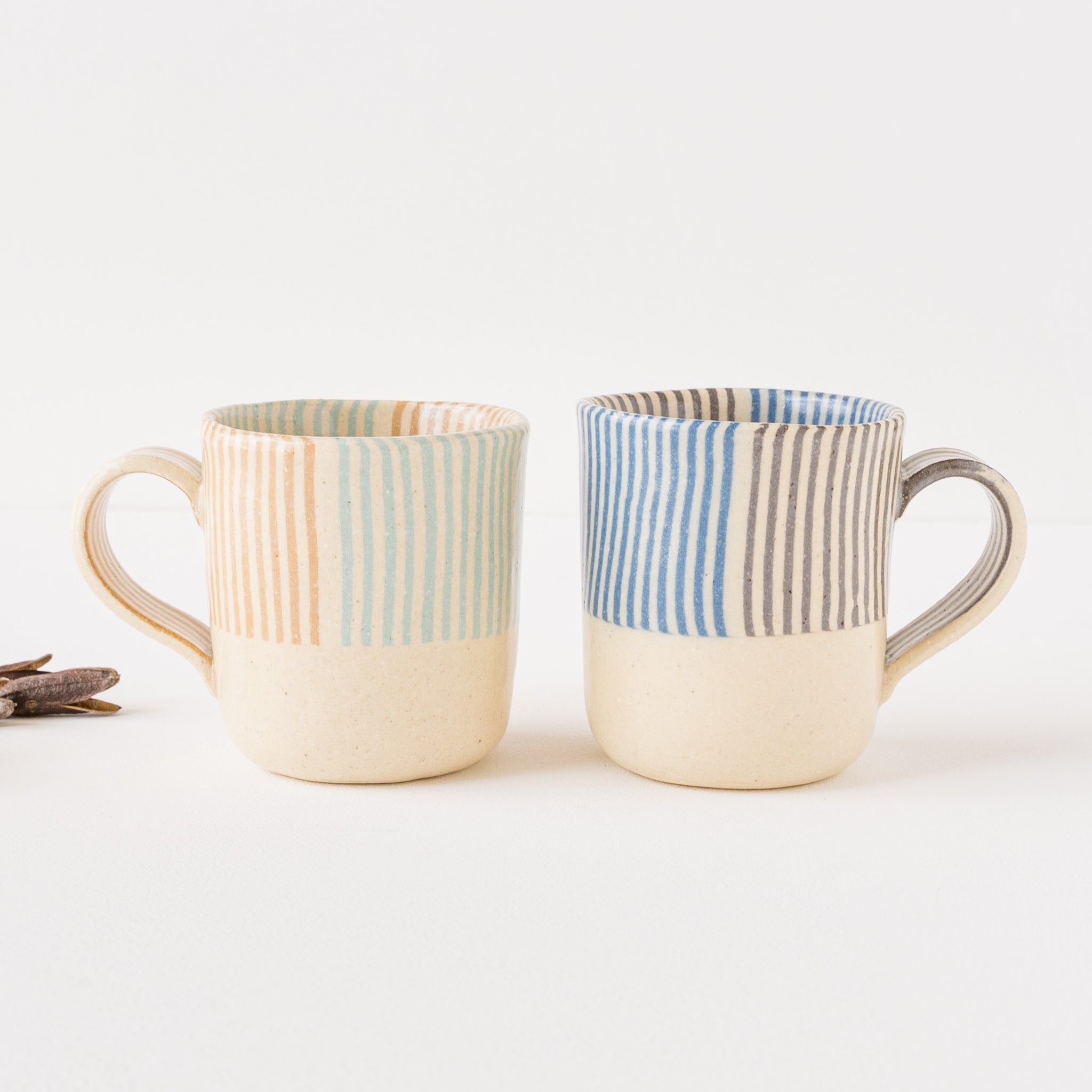(Updated February 28, 2022)
Hanako Sakashita, who is making pottery in Mashiko. The pottery is made with a rare technique called "kneading". We asked him about the production process.
After graduating from Musashino Art University, Mr. Sakashita, who was born in Tokyo, studied pottery at the Aichi Prefectural Ceramics Technical College. After gaining experience at a pottery in Mashiko Town, he became independent in 2010 and set up a workshop in Mashiko. Mr. Sakashita has a warm and gentle atmosphere when I talk to him, but he learned the technique of kneading by looking at books, etc., and learned it almost on his own.

“There is a very kind book (which describes how to make kneaded dough). I used it as a reference. ...But I feel like I'm going to give it a try," said Mr. Sakashita.
Various patterns are expressed by combining potter's clay with various colors. 
Even if you want to make it, you can't draw the pattern as you want, and you have a hard time. Even if you think, "Well done!", since the degree of shrinkage of various pottery clays that are combined is different, it is said that if it does not go well after firing in the kiln, it often breaks. The one and only item is made by repeating trial and error. There is no two of each, it is exactly one-of-a-kind.
We were just preparing the fabric for the brick mug that we will be handling at our store. 
When baked, it becomes a gentle color.
Mug brick pattern yellow x blue x brown 
The tasteful pattern on the back is also attractive. 
Then, the prepared dough is put into a mold and produced.
It seems that this model is also handmade one by one. 
Well, here is the introduction of the handling works!
A popular square dish.
There are two types: a striped pattern with a slightly glossy feel and a checkered pattern with a matte texture.
Square Plate Striped Pattern Yellow x Light Purple
Square plate, striped pattern, turquoise x bright yellow 

Square plate lattice pattern gray
Square Plate Lattice Pattern Indigo

Many of Ms. Sakashita's works have pale, slightly dull, and calming tones that are reminiscent of ancient Japanese colors. It is a style that gives a warm impression as well as a sophisticated design. 
We also have very cute gingham check and plaid bowls in stock!
* “Brown” is the same color of soil, but there are darker colors, and the darker one is gingham check “dark brown”, and we have prepared a separate product page for “brown”. The color of hand-made pottery changes depending on how it is baked and various conditions. I hope you enjoy the encounters that change with the timing. Each one is wonderful, so please take a look.
Square bowl gingham check (brown)


This is a slightly darker "dark brown".

The calm color and texture make it easy to match with a variety of dishes, making it easy to coordinate. Of course, even if you match it with the same pattern, it will be fashionable. Just thinking about which one to match will make you excited!

"Green" is a new arrival!

There are no mugs in the world that are the same, so there are only items that you want to enjoy the individual differences.
Mug cup striped pattern pink x light blue x gray

The striped pattern is cute! There are also different colors.
Mug cup striped pattern light blue x pink x gray

Mug vertical striped blue x gray
Mug vertical striped pattern Turkish blue x bright yellow

Mug (shiny) horizontal striped blue x green
Mug (shiny) horizontal striped pink x blue
Mug cup (mat) horizontal striped pattern|Pink x blue

"Uzura-te" is named for its resemblance to the feathers of a quail. It is one of the traditional kneading techniques. The yellowish-gray flax and bluish sky-blue colors are used to create stylish yet warm items using traditional techniques.



Round Plate Mosaic Pattern Yellow x Blue


Kneading, which is said to be difficult to make, is easy to lose in production. "I'm just not very good at it," says Mr. Sakashita with a soft smile, but I'm sure he's a very hard-working and determined person.
The back has a texture that makes the most of the base material. Because it is not glazed, it is a little easier to get dirty. As with all pottery, wash immediately after use and dry well before storing. I was advised.
Mr. Sakashita, thank you for taking the time out of your busy schedule.
Looking forward to seeing you again!
Click here for items by Hanako Sakashita

